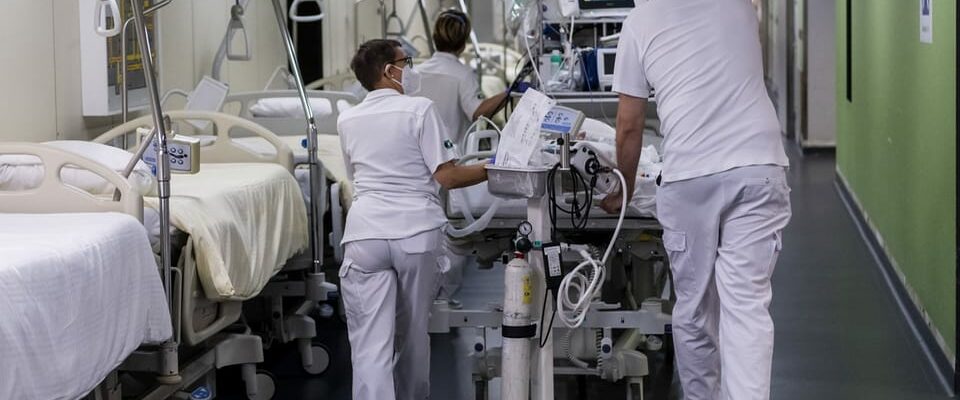- The Swiss Association of Public Service Personnel (VPOD) is against the fundamental restructuring of financing in the healthcare system.
- He has now launched his referendum campaign against the so-called monism bill.
- The referendum period lasts until April 18th.
Opponents of the Efas template (see box) argue that it is dangerous for nursing staff, the quality of care and for those insured. The reform shifts power away from the cantons and towards the health insurance companies. In the future, they would manage eleven billion francs in taxpayers’ money and determine who would receive money for care services and operations.
“The health insurance companies, and thus the premium payers, now have to pay 73.1 percent of all costs, the lion’s share,” VPOD central secretary Beatriz Rosende told the media in Bern. With Efas, there is a risk of premiums and cost sharing increasing even further, concluded Viviane Hösli, Central Secretary for Health in the VPOD.
Insurers are putting enormous pressure on staff to work even faster.
This will further increase cost pressure in the entire healthcare sector. “I’m very worried,” said nurse Deniz Killi. Many of her colleagues have paid for the increasing cost pressure in recent years with greater commitment and stress. This is also reflected in the consistently high number of people leaving the profession. Situations are increasingly occurring in which the satisfaction of needs and the safety of patients can no longer be guaranteed.
Doubts about the usefulness of the template
Cristina Vais, health specialist, also pointed out the precarious conditions in the nursing profession. “Insurers are putting enormous pressure on staff to work even faster.” The Efas template will give health insurance companies additional weight. This represents “an enormous risk for the population, patients and health workers”.
Legend:
Who should pay for healthcare services?
Keystone/JEAN CHRISTOPHE BOTT
The proponents of Efas argue that the bill could reduce healthcare costs by treating as many sick people as possible on an outpatient basis instead of inpatient care. Nursing specialist Friederike Flückiger doubts this. “In reality it is not about any savings, but just about a different distribution of costs in favor of the private sector.”
Nursing specialist Heinz Lanz noted that it was clear to him that public health care had to be financed, particularly socially, through taxes and not through the capitation premiums of the health insurance companies. “This is the only way to ensure that everyone makes their contribution according to their abilities to the valuable asset of a public health system.”
VPOD is looking for allies
With Efas the opposite is happening, said Geneva SP National Councilor and VPOD President Christian Dandrès. “Santésuisse estimates the additional share of costs covered by compulsory health insurance to be ten billion francs by 2040.”
It is currently unclear whether other circles in addition to the VPOD will oppose Efas. According to Dandrès, various discussions are currently taking place.
